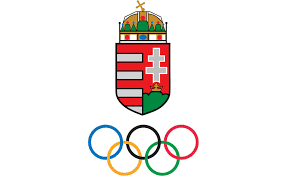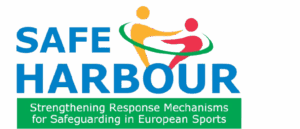The Hungarian Olympic Committee (NOC Hungary) is pleased to be a partner in the new Erasmus+ Project named “Strengthening Response Mechanism for Safeguarding in European Sports” (SAFE HARBOUR), which is coordinated by the European Olympic Committees EU Office (EOC EU Office). This initiative is dedicated to enhancing safeguarding mechanisms across European sport, creating safer environments for all.
About NOC Hungary

NOC Hungary is the 6th National Olympic Committee founded in the world, it was established on the 19th of December 1985. NOC Hungary’s legal status is a civil, sovereign, non-profit organisation with 40 staff members in the NOC office.
Activities beyond the preparation and organisation for all of the International Olympic Committee and European Olympic Committee Olympic and multisport events include:
The work of NOC Hungary on safeguarding in sports to date
NOC Hungary has a staff member who has completed the International Olympic Committee safeguarding officer course in 2022-2023. NOC Hungary has started implementing this knowledge and information into the assistance of the institutional stakeholders such as national sport federations so that they can create their own safeguarding policy and implementation. So far NOC Hungary has helped the national athletics federation, the national skating federation and other sport federations. The NOC has also had requests on awareness raising seminars regarding safeguarding, as in the trained safeguarding officer has done awareness raising for the ice hockey federation during their coach seminar regarding safeguarding.
Equity Committee of NOC Hungary has been also working on safeguarding, raising concrete issues during the committee meetings and discuss possible solutions, as well as marking safeguarding as one of their main task from this year. The NOC has also invited Annamarie Phelps last year to give us a presentation on GEDI related matters including safeguarding that has had a wide audience.
NOC Hungary is very much looking forward to work more on safeguarding in the SAFE HARBOUR project so the NOC can widen this initiation into all our stakeholders, institutional and commercial altogether.
The role of NOC Hungary within the SAFE HARBOUR project
Within the SAFE HARBOUR project, NOC Hungary will play a critical role in tailoring the European Response framework to its national context. Responsibilities include drafting a National Strategy to guide safeguarding actions, delivering mandatory training for the leadership and National Federations, and hosting a National Multiplier Event to raise awareness among stakeholders. Additionally, NOC Hungary will engage in peer-to-peer roundtables, contribute to thematic seminars, and disseminate the project results through various channels. By actively participating in all project activities, NOC Hungary will help ensure the successful implementation and sustainability of safeguarding measures.
Background information on the SAFE HARBOUR project
The SAFE HARBOUR project, short for “Strengthening Response Mechanisms for Safeguarding in European Sport”, is a 30-month project co-funded by the European Union through the Erasmus+ Sport Programme 2024. Coordinated by the EOC EU Office, the consortium includes Thomas More and Asser Institute as experts on safeguarding, human rights and law, 2 International Federations (International Biathlon Union and International Ice Hockey Federations), and 20 National Olympic Committees (Belgium, Bosnia and Herzegovina, Croatia, Cyprus, Czechia, Denmark, Germany, Hungary, Kosovo, Latvia, Lithuania, Luxembourg, Malta, Montenegro, Norway, Poland, Portugal, Romania, Slovakia and Slovenia). Additionally, the International Olympic Committee (IOC) is involved as an outside resource.
The project seeks to strengthen the capacity of European NOCs and Federations to address safeguarding concerns by identifying gaps, developing a European Response framework, and fostering collaboration. This framework will be adapted to national contexts, complemented by training and awareness initiatives to enhance safeguarding measures at both national and European levels. Therefore, SAFE HARBOUR aims to equip partner NOCs and Federations with the tools and confidence to implement effective safeguarding measures while establishing a robust support network for Safeguarding Officers and laying the groundwork for a future IOC Regional Safeguarding Hub.

![]()